On a mid-January Monday in the early 70s, a barely 10 year old Kailash, with her friends walked into a neighbour’s house. Prancing about the gullies of Tilak Nagar (Delhi), right after school, they had stopped by for a meal, where the Kunka prasad was being made that day.
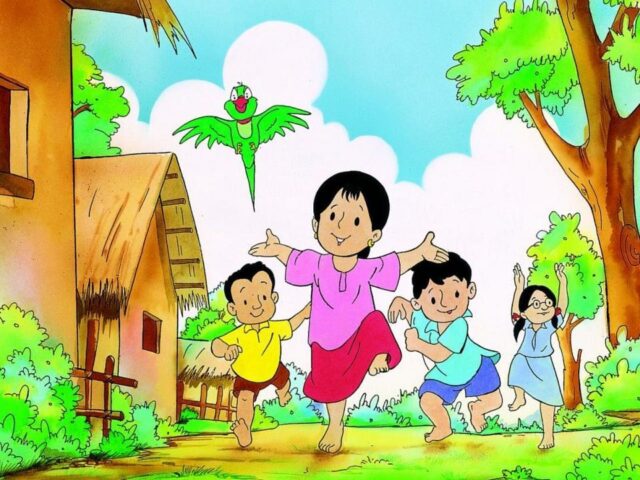
Kailash Pahuja’s parents were amongst the Punjabi Hindu population from the princely state of Bahawalpur, who had to migrate to Delhi (India) post the partition. Since then, this community, has lived in close-knit circles, predominantly in Delhi, Punjab and Haryana.
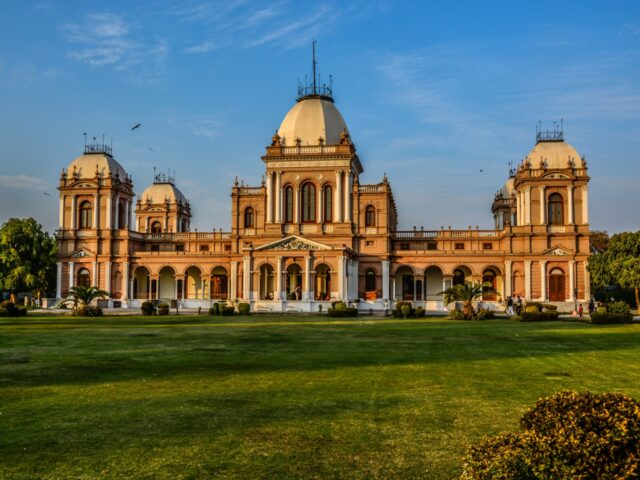
Kunka is a tradition celebrated by the Bahawalpuri and Multani communities, in the month of Maagha – the eleventh month of the Hindu calendar, which falls between mid-January and mid-February of the Gregorian calendar.
The convention is predicated on the belief that when someone prays to the Hindu deity Shiva to fulfil a wish and their prayers are answered, they vow to follow the Kunka tradition every year for the rest of their lives and bequeath it to their children.
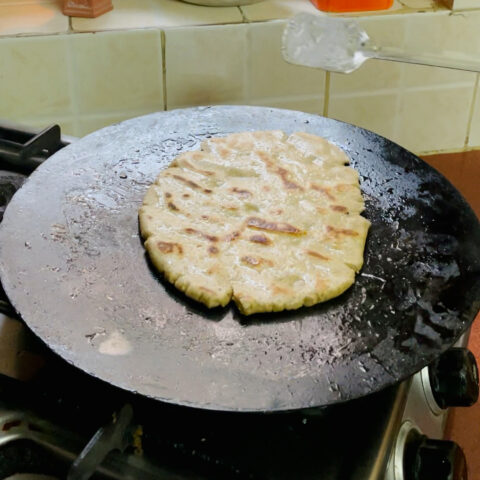
Also known as dora or choori, the custom lends its name to the sweet prepared from jowar (sorghum) atta, made as an offering for Shiva. Thick jowar rotis are patted onto a greased pan and slow cooked until they turn evenly brown. The rotis are then crushed by hand while they’re still hot. This is often a family activity, especially when large quantities are prepared, everyone gets together to prepare the choori. These days the crumbled rotis are toasted in the kadhai once before mixing chashni in it, to improve its shelf life.
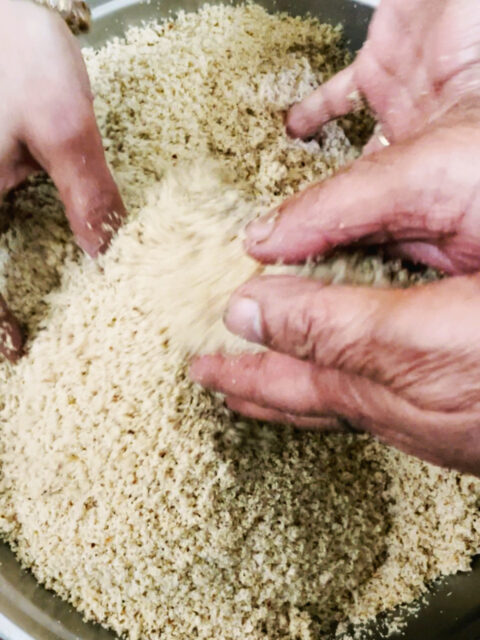
For 1 kg jowar atta, a chashni (syrup) is made using 500gm gur (jaggery), 300gm ghee and one glass of water. The gur and water are heated until the syrup comes to a boil. Then ghee, almonds, cashews and raisins are added to it.
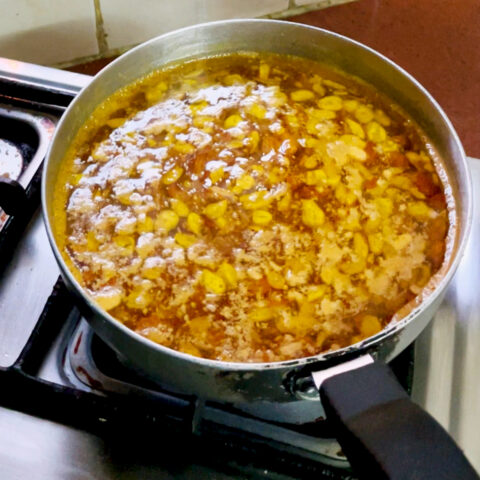
Once the chashni cools a little bit, albeit still hot, it is mixed into the jowar ka churma (crumbled jowar rotis). The resulting crumble is called kunka.
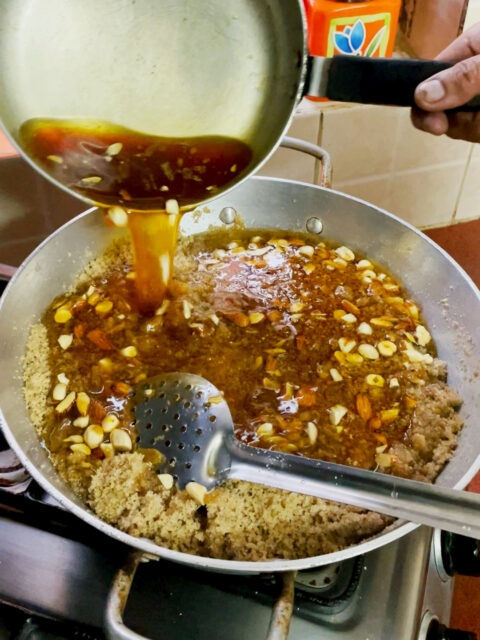
Kailash’s father, fondly known as Bhagat ji, was the temple Pradhan of the prodigious Shree Satya Narayan temple of Tilak Nagar and faith was the guiding principle behind their way of life. For them and many from the community, food was inextricable from religion. Dishes were prepared from whatever was seasonally available and the divine were honoured by nourishing as many people as feasible, with the limited resources available.
Kunka, which doubles up as dessert and grain, is also served with a preordained meal made from nature’s bounty. Dry masala aaloo sabzi, mint raita, gajar ka achaar and sarson ka saag are the customary accompaniments that pair well with it.
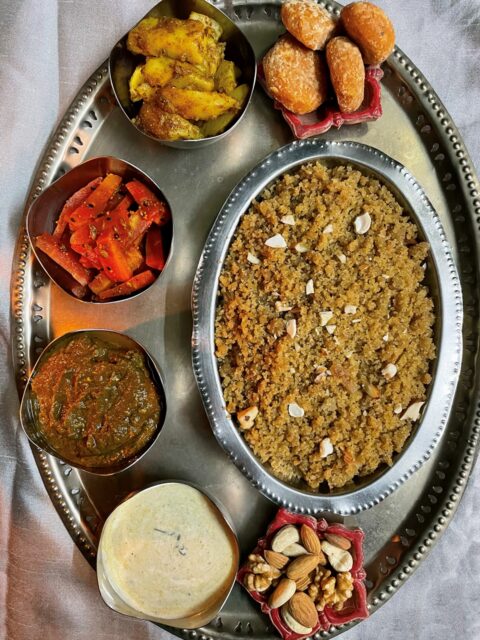
A pooja thali (holy meal tray) arranged with these dishes is offered to the deity’s idol and a stem of aak leaves is placed as adornment.
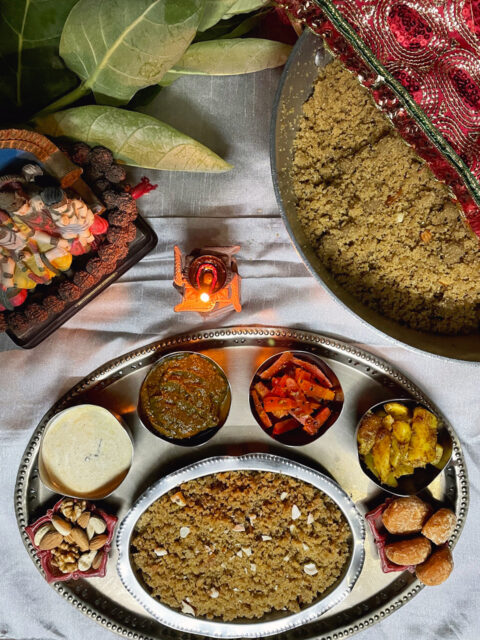
Relatives, friends and neighbours are invited well in advance and on every Monday of the maagha month, many Bahawalpuris and Multanis prepare this religious repast. To those visiting in the evening, warm milk is also served after the meal, to tackle the winter tide.
Back in the day when mothers were busy at home and fathers at work, children from the neighbourhood would turn up in groups, during the day time. As it happens, unsupervised loitering children were never entertained the same way as they were when accompanied by parents. They were asked to hold out their frocks and shirts and a handful of kunka was plonked into them; and the forlorn fledglings would head back home.
Kailash always preferred going with her Amma. To this day, she recalls those Maagh Mondays when she was accompanied by her mother and she was treated to a proper sit down meal of all five dishes. She particularly remembers the taste of every dish from one Monday afternoon, when she ate to the point of slumbering contentment. Sometimes, when they went in the mornings they would listen to the Shiva Katha from the pandit before the holy meal service.
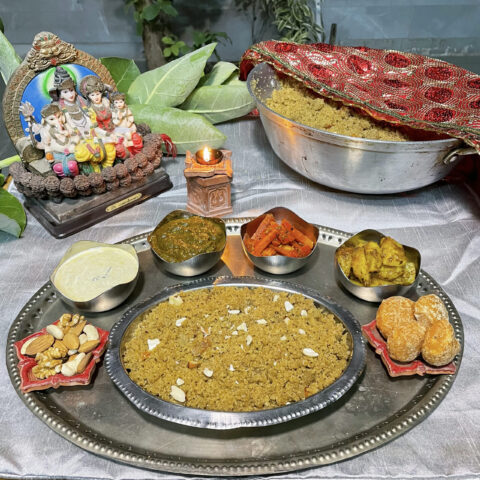
Kailash doesn’t remember the story much today. She rings her childhood friend, Shashi, who is amongst the few who still perform the ritual, in the hope that she might help her recollect some parts of the tale.
In essence the legend says: There were once a king and queen who celebrated the kunka tradition every year. Once, the queen prepared the dish with wheat instead of jowar, which is said to have upset Lord Shiva and the King. The queen was ousted from her home and cursed. Catastrophes ensued wherever she’d set foot. She stopped by a nearby river to drink water but it turned to blood. She walked into a garden but the garden withered. When she tried taking shelter at her sister’s house, her kids disappeared. She ran into the forest and shut herself in a cottage. The cottage belonged to a rishi who promised to help her and treat her like his daughter. The queen shared her plight with him; the rishi gave her an earthen pot with sacred buttermilk and asked her to sprinkle it wherever she went. The river, garden and children came back to life and eventually on realising his mistake, the king took her back home. Next time, the king and queen invited the whole village and followed the customs as prescribed.
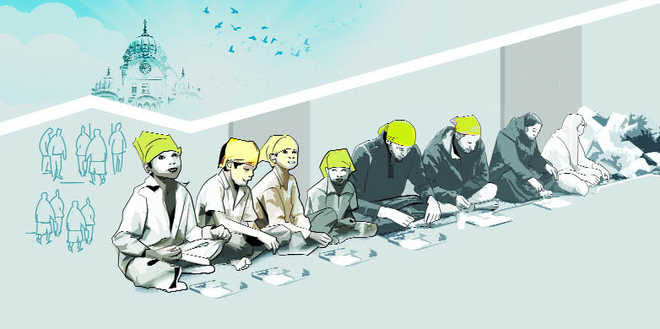
Somewhere mid-conversation Shashi recalls, “the prasad should only be wound up after sunset. Once when we closed the service early, we were shocked to find that there was no prasad left. We had made so much of it. Impossible that it would all just vanish! If you keep it covered, you never run out of it.” Both concur that it is all Lord Shivas glory.
They speak over the phone for hours, harking back to the 70s; validating miracles, attempting to fill in blanks in the story, piecing together whatever they can and trying to reconstruct each other’s memories.
That the shared facet of this tradition has mostly dwindled, is hard to digest for both women who have spent a good part of their lives devoted to it. Earlier, it was mandated that the tradition be an act of culinary communion and the prasad never left the house. Since very few still celebrate it at scale, it is packed in boxes and delivered to neighbours, which defies the purpose of the convention, but is the best way to sustain it, for now.
“Over the last two years, most people haven’t been able to invite anyone over”, Kailash notes. “Our children will probably never remember Kunka. It has always been an unwritten tradition. I think I’m going to write the story down and share it with someone. What if no one does?”
Translations and detailed descriptions are provided to give a better understanding of the story to people from different cultural backgrounds across the globe.

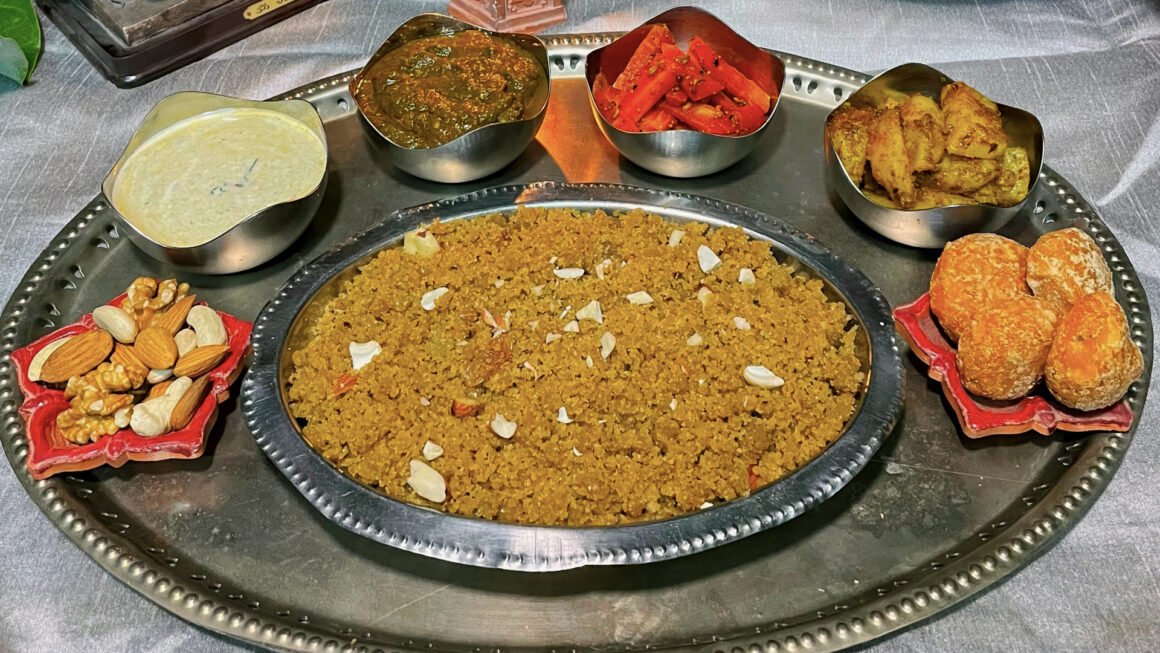
25 comments
Very well captured the sentiments and nicely presented. Team buite, excellent! Keep it up. Har Har Mahadev. Jai Bholey Baba.
Thank you for sharing this beautiful story with us 🙂
Well done to discover and bring out lost recipe to the fore that bonds the society and brings harmony. Keep it up. Good job
Thank you for your support 🙂
Amazing information
Thank you 🙂
Old tradition.. still remembered / followed by some pple.. Nicely described.. thanks..
Thank you for your support 🙂
Best day hota hh yehh
Bilkul..agreed 🙂
Awesome story
Thank you 🙂
Culture & traditions are made to follow and this is the beauty of our culture that teaches us how to celebrate it with limited resources. We should always encourage our tradition & pass it to next generation. With the reference to content, this is a marvelous step to explain the importance and ethnicity of festive. Through this our youth will be aware about their traditions and acknowledge this in their life.
Hare Krishna 🙏
Happy to know that our story resonates with you. Thank you for your support 🙂
Very nice short story mixed with childhood friends and traditions that are slowly melting away modernity.
Thank you 🙂
I m Shashi Nagpal.. kailash’s friend.. thankyou for giving me this much credit..
Thank you for being an essential part of the story and sharing your memories with us. Means a lot 🙂
I loved the churi prasad very much…. Lord Shiva to param pita hein.. Unka haath sada sabke upar rahe.. Corona kaal mein sabne bahut kuch khoya hai, bhole naath unn sabko himmat denge… Bs baba pe bharosa rakho aur dekhna sab achha hi hoga… Kuch achha nahi bhi hota to bhi bharosa mt tutne dena… Hamare karmon ke hisab se hi hamari life chalti hai. Humme shikayat karne ka koi haq nahi hai.
🙏🙏JAI BHOLE NATH KI🙏🙏
It tastes delicious 🙂 Hamari kahani padhke uski sarahana karne ke liye dhanyawad.
Thanks to my mother nd baba… Jo mujhe iss layak samjha aur mujhe unka prasad khane ka mauka mila… Ye mera karam tha.
🙏🙏🙏🙏
🙂
It is great article on KUNKA festival.It has been nicely presented by you. You have handsomly reminded us with kind of traditions involved in it
Thank you for the appreciation 🙂
We also celebrate this festival in Chandigarh and prepare in bulk. We also dont allow it to be packed and taken away. It has to be consumed at the house. It feels so good to hear read about kunka. I hope this does not vanish away from our traditions. Can we share some pictures with each other how we celebrated this ?
Lets all connect on some platform ?